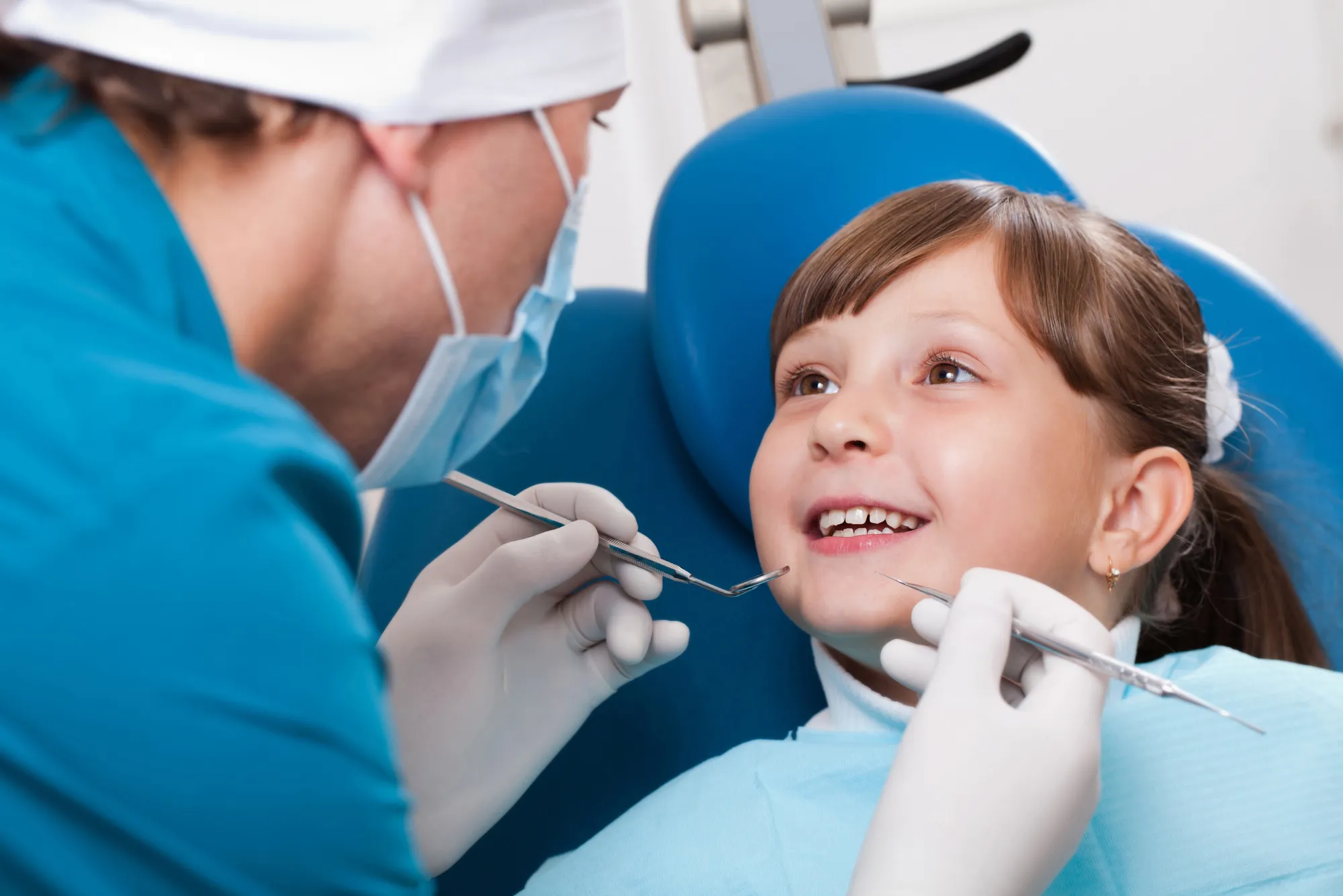Caring for a baby’s oral health is a priority for parents, but it can feel overwhelming when you’re unsure about the right approach. One common question is whether babies need toothpaste for proper teeth care. This article explores the answer, offering evidence-based insights, practical advice, and expert recommendations to ensure your baby’s smile stays healthy. We’ll also touch on sedation dentistry for kids and how to brush baby teeth to address related concerns for parents seeking comprehensive dental care solutions.
When Do Babies Get Their First Teeth?
Most babies get their first teeth between 6 and 12 months of age. These tiny pearly whites are exciting milestones, but they also signal the start of oral hygiene responsibilities. Even before the first tooth appears, establishing a dental care routine is essential to promote healthy gums and prepare for future teeth.
Do Babies Need Toothpaste?
The short answer is: it depends on the age and stage of your baby’s dental development. According to the American Academy of Pediatric Dentistry (AAPD), toothpaste isn’t necessary for infants under 6 months or those without teeth. Instead, parents should gently clean their baby’s gums with a soft, damp cloth or a silicone finger brush to remove bacteria and food particles.
Once the first tooth emerges, a small amount of fluoride toothpaste can be introduced, but with caution. For babies under 2 years old, the AAPD recommends using a smear of fluoride toothpaste—about the size of a grain of rice. This tiny amount is safe if swallowed and provides just enough fluoride to strengthen developing teeth without risking fluorosis, a condition caused by excessive fluoride intake that can affect tooth enamel.
For children aged 2 to 6, a pea-sized amount of toothpaste is appropriate. Parents should supervise brushing to ensure minimal swallowing and proper technique. Non-fluoride toothpaste is an option for parents concerned about fluoride, but it’s less effective at preventing cavities. Always consult your pediatric dentist to choose the best toothpaste for your child’s needs.
Why Is Toothpaste Important for Babies?
Toothpaste, when used correctly, plays a vital role in maintaining oral health. Fluoride strengthens enamel, making teeth more resistant to decay—a critical factor since baby teeth are more susceptible to cavities due to their thinner enamel. Toothpaste also helps remove plaque, a sticky film of bacteria that can lead to gum irritation or early tooth decay if left unchecked.
However, toothpaste alone isn’t enough. How to brush baby teeth properly is just as important. Using a soft-bristled toothbrush designed for infants, parents should brush gently in circular motions, focusing on all tooth surfaces and along the gumline. Brushing twice daily—once in the morning and once before bed—establishes a routine that sets the stage for lifelong dental health.
How to Brush Baby Teeth Safely
Learning how to brush baby teeth can feel daunting, especially if your baby fusses or resists. Here are some practical steps to make the process easier:
-
Choose the Right Tools: Select a soft-bristled toothbrush with a small head designed for infants. Silicone finger brushes are also great for babies who find traditional brushes uncomfortable.
-
Use the Correct Amount of Toothpaste: For babies under 2, use a rice-grain-sized smear of fluoride toothpaste. For toddlers aged 2–6, upgrade to a pea-sized amount.
-
Brush Gently: Hold your baby in a comfortable position, such as on your lap, and brush in small, circular motions. Focus on the front, back, and chewing surfaces of each tooth.
-
Make It Fun: Sing a song, use a colorful toothbrush, or turn brushing into a game to keep your baby engaged.
-
Supervise Closely: Until your child can spit out toothpaste reliably (usually around age 6), supervise brushing to prevent swallowing.
Consistency is key. Brushing twice daily, even for just a minute, helps remove plaque and bacteria while familiarizing your baby with the sensation of brushing.
Common Mistakes to Avoid
Parents often make well-meaning mistakes when caring for their baby’s teeth. Here are some to watch out for:
-
Using Too Much Toothpaste: Excess toothpaste increases the risk of swallowing, which can lead to fluorosis. Stick to the recommended amounts.
-
Skipping Brushing: Some parents assume baby teeth don’t need much care since they’ll fall out. However, baby teeth play a critical role in speech development, chewing, and guiding permanent teeth into place.
-
Ignoring Gums: Even before teeth emerge, cleaning gums prevents bacteria buildup and prepares your baby for brushing.
-
Using Adult Toothpaste: Adult formulas may contain higher fluoride levels or abrasives unsuitable for babies. Choose a toothpaste formulated for infants or toddlers.
When to Visit a Pediatric Dentist
The AAPD recommends scheduling your baby’s first dental visit by their first birthday or within six months of their first tooth erupting. A pediatric dentist can assess your baby’s oral health, provide guidance on how to brush baby teeth, and address any concerns, such as early signs of decay or teething discomfort.
For children who are anxious or uncooperative during dental visits, sedation dentistry for kids can be a game-changer. This approach uses mild sedatives to help children relax during procedures, ensuring a positive experience. Sedation dentistry for kids is particularly helpful for young patients with special needs, severe anxiety, or those requiring extensive dental work. Always discuss sedation options with a qualified pediatric dentist to ensure safety and appropriateness for your child.
Additional Tips for Baby Dental Care
Beyond brushing, here are some ways to protect your baby’s oral health:
-
Limit Sugary Foods and Drinks: Sugary snacks, juices, and formula can contribute to cavities. Offer water between meals and avoid letting your baby sleep with a bottle, as this can lead to “bottle rot.”
-
Introduce a Sippy Cup Early: Transition from bottles to sippy cups by age 1 to reduce the risk of prolonged exposure to liquids that can harm teeth.
-
Monitor Pacifier Use: Prolonged pacifier use can affect tooth alignment. Aim to wean your child off pacifiers by age 2 or 3.
-
Encourage Healthy Habits: As your baby grows, model good oral hygiene by brushing your teeth together. This reinforces the importance of dental care.
Addressing Parental Concerns
Many parents worry about their baby’s reaction to brushing or dental visits. If your child resists brushing, try different techniques, such as using a flavored toothpaste (safe for their age) or letting them “brush” a stuffed animal’s teeth first. For dental anxiety, sedation dentistry for kids can make visits less stressful, ensuring your child associates dental care with comfort rather than fear.
Another concern is whether toothpaste is safe for babies who can’t spit yet. The small amounts recommended (rice-grain-sized for under 2, pea-sized for 2–6) are designed to minimize risks even if swallowed. If you’re still unsure, consult your pediatric dentist for personalized advice.
Building a Foundation for Lifelong Dental Health
Caring for your baby’s teeth is about more than just preventing cavities—it’s about setting the foundation for a lifetime of healthy smiles. By starting early, using the right tools, and mastering how to brush baby teeth, you can instill habits that last. Toothpaste, when used appropriately, is a valuable tool in this process, but it’s just one part of a comprehensive oral care routine.
Regular dental visits, a balanced diet, and consistent brushing are the cornerstones of healthy baby teeth. For children who need extra support during dental procedures, sedation dentistry for kids offers a safe and effective solution. By addressing oral health proactively, you’re giving your baby the best chance at a bright, confident smile.




